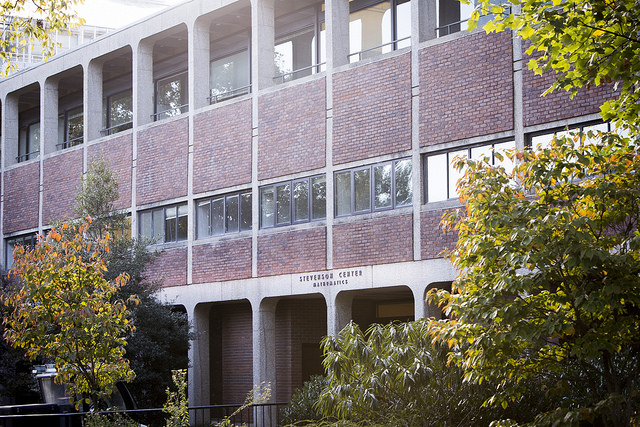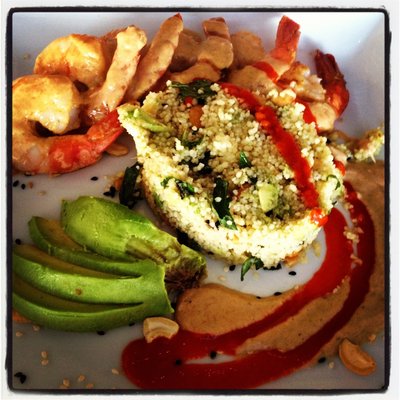How to Study (The 4th Thing I Learned Junior Year)
Wow, this post is so important. Although I came to Vanderbilt as the valedictorian of my high school class, National Merit Scholar, AP Scholar, all the rest, I didn’t fully know how to study. I was doing parts of it: talking to myself outloud, creating quizlet sets, making connections between the material, but I didn’t pay attention 100% in class (either sleeping or doodling; rarely, actually, on my phone), I didn’t create study guides, and I definitely didn’t understand the material 100% after every lecture, which is so crucial. After two years at Vandy, I took Organic Chemistry over the summer. It was then that my life changed when I read How to Be a Straight-A Student by Cal Newport. My organic chemistry grade went from a B+ to an A first semester to second semester and I just about cried. These tips are mostly from him, with a *few* pieces of my own advice thrown in. Also, READ THE BOOK. I promise I don’t have a commission or anything, but I want your life to be changed, too.
Premise: Always pay attention in class. For 50 minutes or 90 minutes, depending on the length of the class, put your phone away and pay super attention. This can vary for different classes; for example, if in your Music History class, the writing material is based on the readings which are found on Brightspace, then it’s more understandable if you answer emails in that portion of time or review for another class. But if it’s a hard science, math, or something that will test on the lecture notes, put that phone away. If you need to, give it to a friend.
Also, ask the professor questions after class. Like right after. Also, go to their office hours; you will absolutely never ever regret going to a professor’s office hours. If you can’t make their office hours, try to schedule an appointment with them via email. Most professors are pretty responsive if you give them at least a day’s notice (though more is usually better) and ask them for a 30-minute appointment somewhere in your schedule (provide gaps of >2 hours that you are free throughout the day that they can pick through).
Problem-based science/math classes:

– Write down all the problems the professor covers. Write down as many “little notes” next to these problems so that you can talk yourself through it later. Note that verb: talk. Very important.
If you don’t understand something, mark it with a question. Come back to this later.
– Two weeks before the exam, set aside time to compile your study materials. Create a study guide by writing on the same pages the sample problems from your professor and the homework questions that looked like it.
– Over the next few weeks until the exam after every lecture, do this with your notes and homework
– Alternatively, you could just do this after every lecture once you’ve completed the corresponding homework
– Now, write questions on these pages of related question. For questions based on PV=nRT, a question could look like: “Given volume, pressure, and temperature, how do we find moles?” And you would have to use that equation.
– So now you have groups of related questions connected by overarching questions. Awesome!
To practice these problems, go through them as “practice quizzes.” Do the first three questions on a group of related problems. If you’re doing them quickly and have no problems, understanding the concept behind the problem and not just the problem itself (dangerous for the test where the professor is likely to change something!), then you’ll be totally fine
– For all information not problem-based, develop question/answer based practice quizzes. Something that also helped me was an “exam outline” of 3-4 pages on the trajectory of information we covered, which helped me review and synthesize information
Non-problem based courses (Biology, Philosophy, etc)

– For a process-based course such as biology, use lots of diagrams and pictures in your study guide.
What helped me after every lecture was sitting down and creating questions & answers out of the information, focusing on organizing the information process by process and then making my questions and answers out of that. I called it an “E1OS,” which at the time was short for something but I forgot what. It may have been “everything on 1 page of stuff” :) This was often more like 2-4 pages than 1, but it definitely helped me understand the lecture better
After these were created (all in the same document), I would run through what I had just created over the next day, making sure I understood that lecture.
– A week and a half before the exam, I would start dividing up the lectures and reviewing them chunk by chunk. I found it oftentimes more helpful to target what I had not understood first, then the most recent material, then the middle, then the first part of the material. The first stuff is often the introductory, easier things that will make more sense later as the “story” of the information progresses
– Talk yourself through the material. Pace. Take a walk on campus. Go somewhere and just speak out loud. It’s the best way to remember things, the best way to explain things to yourself, and I can’t emphasize how much how things just stick.
– Look for connections when you’re studying. This is how you do really well. If something you’re learning reminds you of something else you learned earlier, look for the similarities and differences between those things. Creating tables comparing related subjects really helped me a lot too.
– After every exam, evaluate what you did wrong. For example, I received an B+ on my first bio exam. A good start, I thought. What did I need to do differently? Evidently, I needed to focus on more big-picture questions, because I hadn’t understood how things were linked together in the short answer. On the second exam, I missed a few multiple choice questions dealing with little facts but did perfectly on the big-picture short answer. Okay, I thought. Just a little more practice on the memorization of the little facts, something that had slipped away from me when I focused on the big picture. On the third exam, we had a different professor, who tested in a different way. I drew a couple of diagrams backwards and missed definition-based questions. So I worked on this for the fourth exam, practicing diagrams on the board and using a quizlet set to focus on definitions. By that time, I had fixed every single mistake I had made in the last 3 exams, but I had forgotten to read the Multiple Choice questions directions to “Circle all the best answers,” so I missed receiving an A because of that. I ended up receiving a B in the class after getting a B+ on the final. I definitely should have done better, but it was a major obstacle for me not having taken a class like bio before (non-technical, difficult, exam-based) and having only done problem-based classes. Luckily, we have a semester of bio left, and now I can use everything I learned! And I love bio, so that’s good :)
– For a more history-based course where you have exams, questions and answers are definitely the way to go
– Focus on stories, metaphors, analogies… anything that will help you remember big concepts
– Before my biology exam, I prepared myself with practice quizzes, study guides, and the rest. The day before, I took about eight hours (two hours worth of breaks sprinkled in) and talked my way through the four exams we had taken with a friend of mine who was in the same class. With every single question, we discussed why the correct answer was the correct answer and why the other answers were wrong. We went back to the original subject that it was tested on and discussed that as well. Because I had a sturdy grasp of the information already, I was able to hone a few things I hadn’t been so sure about. At about 6 PM (we had started studying at 10:30 AM), I concluded studying and didn’t do anything until 9 PM, when I did an hour or so of practice quizzes. I went to bed feeling rested for the exam in the morning.
I hope that this helped! I know it was a lot of information and you may not agree with all of it – that’s totally fine! This is just what worked for me.
Email me at sophia.druffner@vanderbilt.edu if you have any questions!
Sincerely,
Sophie